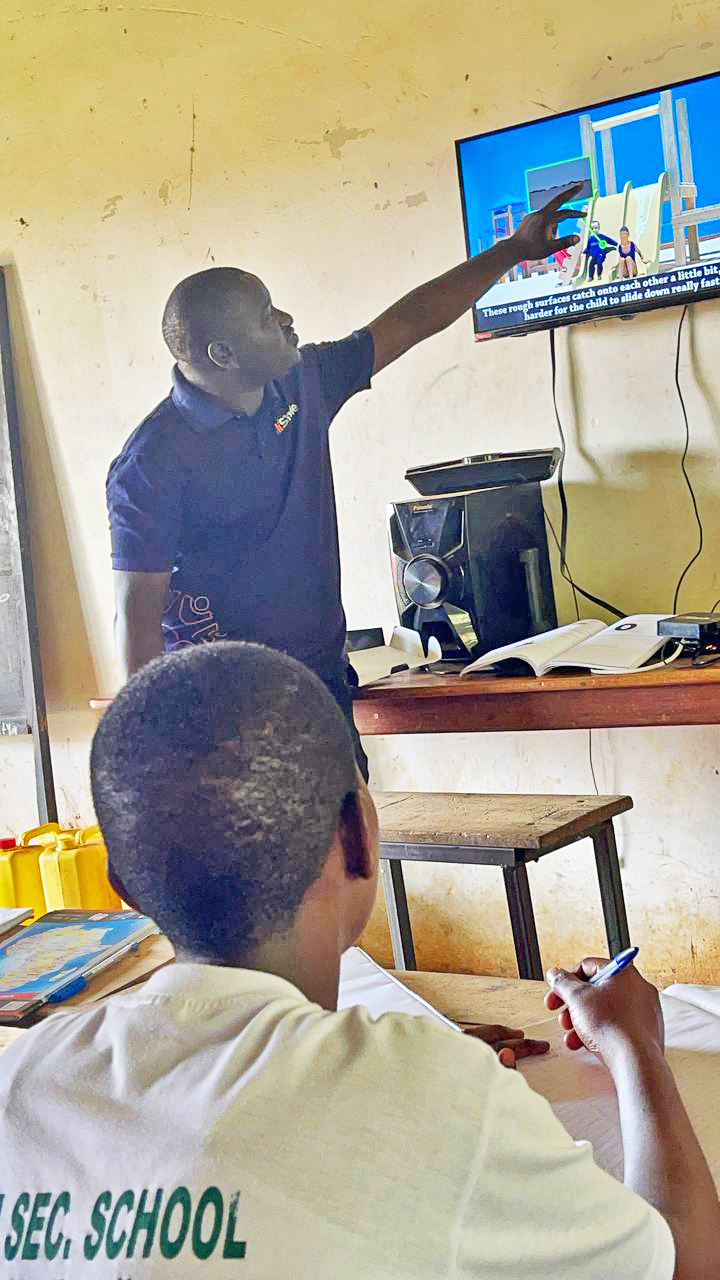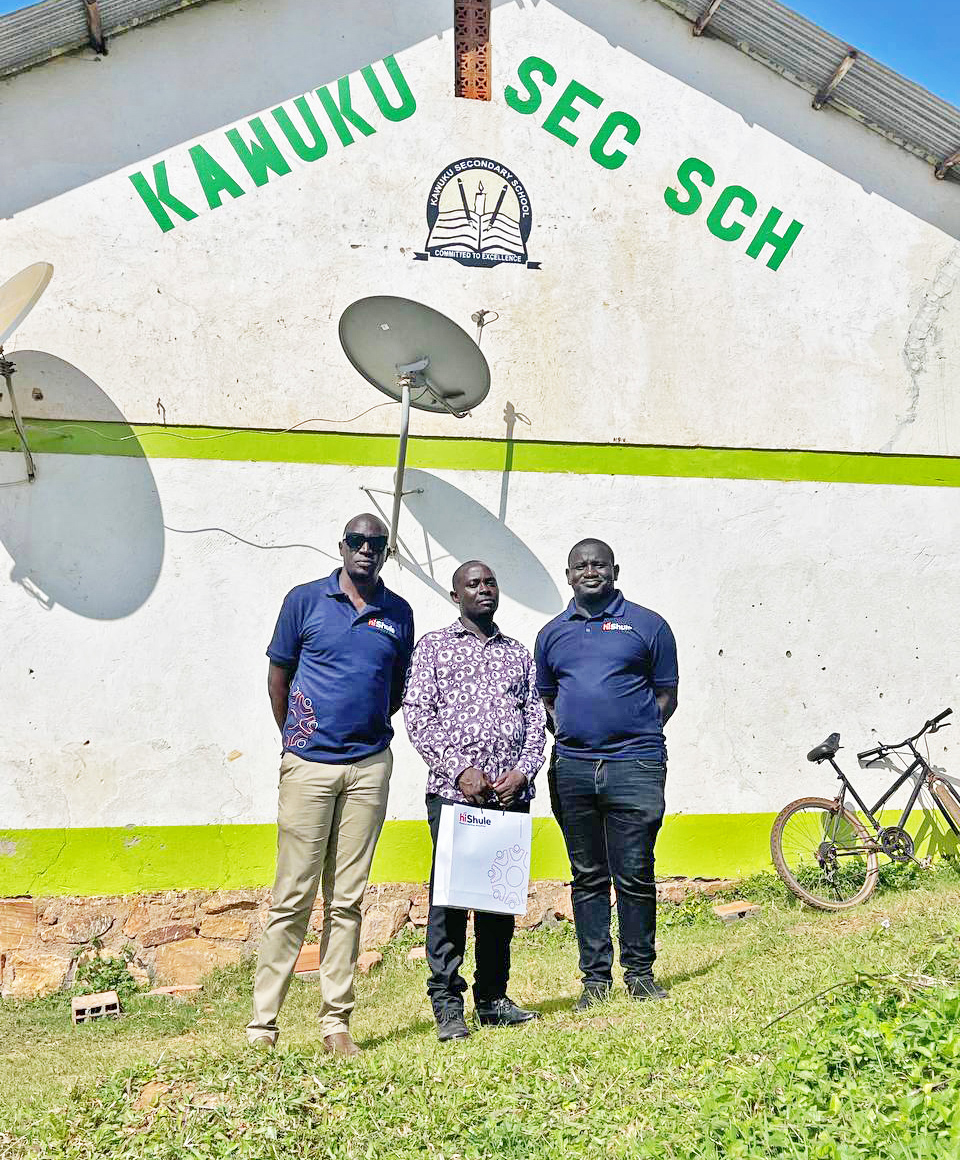70 Ugandan schools, 200 teachers benefit from STEM initiative
Over 70 secondary schools and 200 teachers are now using animated, offline digital tools to tackle science, technology, engineering, and mathematics (STEM) challenges, thanks to a social enterprise that’s reimagining science education.
Gideon Ssenkayi, the Team Lead (Hishule) and Co-founder Nicholas Masaba, engaging teachers during a seminar at Seeta High Green Campus on 28th June, 2025. (Courtesy photo)
_________________
In Uganda’s classrooms, a technology-driven learning initiative is bridging gaps in science education.
Over 70 secondary schools and 200 teachers are now using animated, offline digital tools to tackle science, technology, engineering, and mathematics (STEM) challenges, thanks to a social enterprise that’s reimagining science education for underserved communities.
A Classroom Makeover
From Kampala city-based Kawempe Muslim Secondary School to the remote Kalangala district islands, schools are adopting “visual simulations” to teach physics concepts like rotation and magnetism through animated videos.
A student of Kawuku SS watching some of the content by Hishule as Gideon Ssenkayi, the Team Lead (Hishule) takes her through the lesson. (Courtesy photo)
The low-cost system, approved by Uganda’s National Curriculum Development Centre (NCDC), has reached thousands of students nationwide, offering a lifeline for schools lacking proper laboratories.
“At first, explaining space physics felt impossible,” Wycliff Kirabira, a physics teacher at Bastion High School in Kawempe, Kampala, says.
“Now, with videos, learners visualise instantly.”
According to Senior Three student Hadijah Nalunkuma, animated lessons make learning fun and unforgettable.
Initiative Hishule’s founder, Gideon Ssenkayi, a Makerere University graduate, said building a science lab costs eight times more than a standard classroom. His solution? The Smart Box, a solar-powered offline server storing animated lessons. At a base price of shillings 900,000, the kit includes a projector, allowing schools to bypass Internet and electricity barriers. Hishule was co-founded with Nicholas Masaba.
Five underprivileged schools, including Bastion High and Busi Seed School, have received free kits, including solar systems and teacher training.
“This changes everything because the content aligns perfectly with the new curriculum,” Kuluthum Nansamba, a physics teacher at Kawempe Muslim School, said on Wednesday, October 1, 2025.
The business model
According to Ssenkayi, they are looking at profits from wealthier schools to fund free kits for marginalised institutions. The initiative also trains teachers to create their own interactive content using free software, empowering educators to adapt lessons locally.

Gideon Ssenkayi, the Team Lead (Hishule) and Co-founder Nicholas Masaba, handing the kit to Herbert of Kawuku SS. (Courtesy photo)
This October 2025, Hishule launched Nkere Learning, targeting girls in underserved areas with full access to kits and mentorship.
“We’re building for the learner and the classroom,” Ssenkayi said.
However, despite success, hurdles remain as several schools still lack basic infrastructure, and scaling the initiative requires sustained funding. Early results are promising, with plans to expand into biology and chemistry, and an AI-powered offline quiz platform in development.